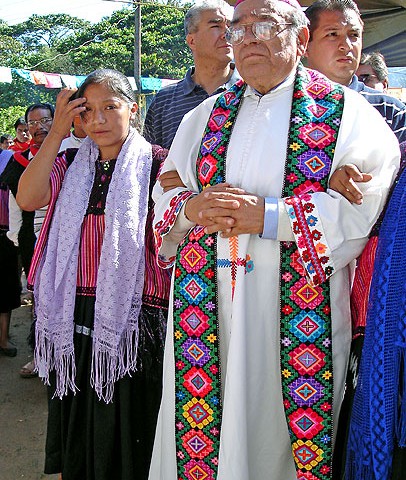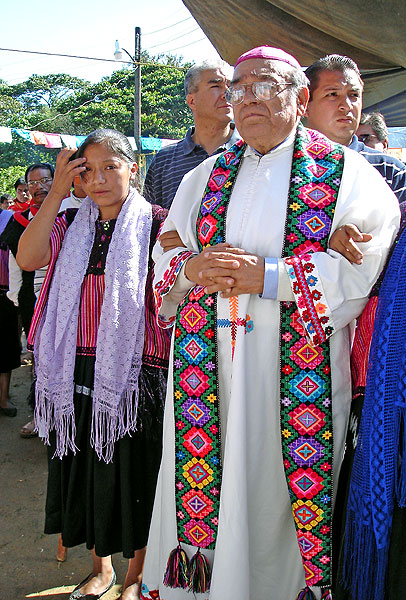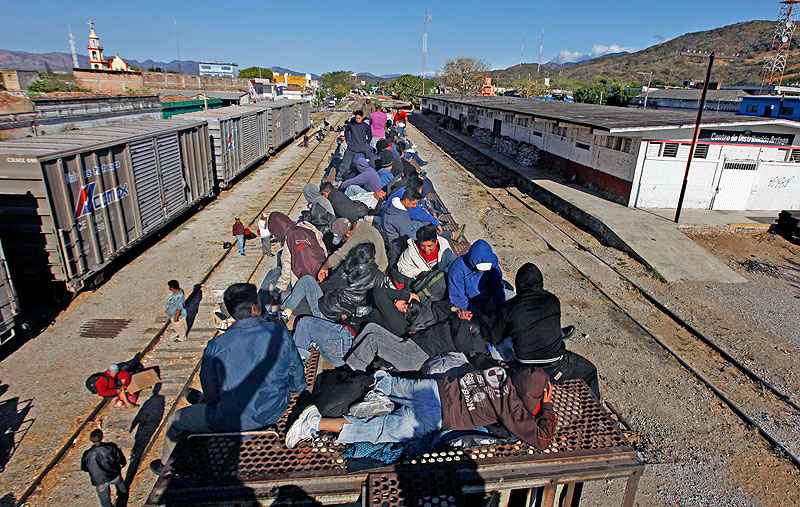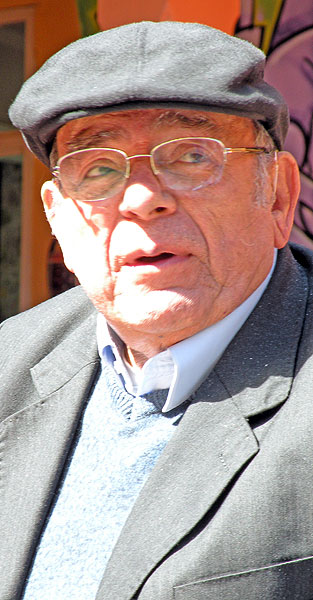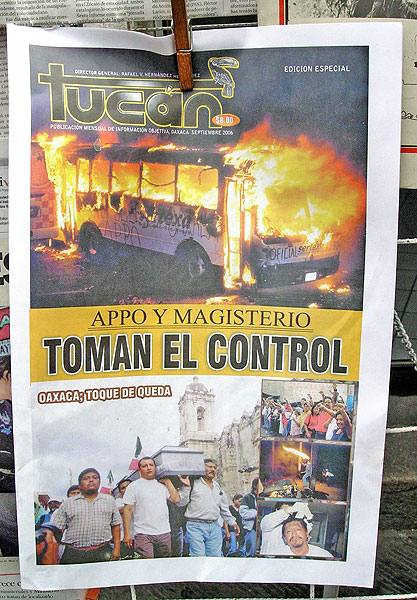2010
03/01/2011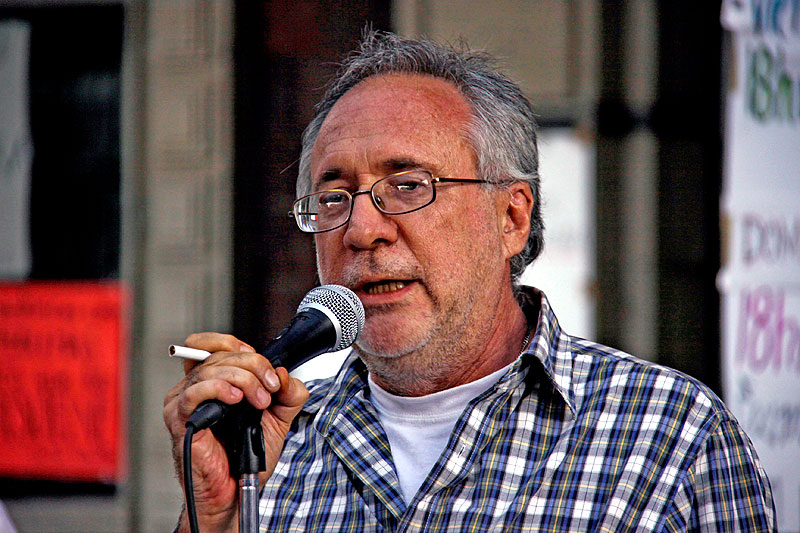
ANALYSIS : National mobilization against violence
29/04/2011The declassification by Wikileaks (an Internet site dedicated to the publication of classified information) of the internal correspondence of the U.S. State Department produced rarely seen repercussions at the global level and was grounds for many different reactions internationally. With respect to Mexico, that which has been published generated debate that, beyond presenting new information, confirmed rumors that had been in existence for some time, especially with regard to the controversial strategy of combating organized crime. On the other hand, Mexico succeeded in positioning itself within the international community as the host of the Conference of Parties (COP-16) regarding climate change held in Cancún in December 2010 due to the accord that was there agreed to against expectations. Regardless, critical voices mobilized themselves against COP-16, claiming it urgent and necessary that there be a profound change in the mode of food production so as to avoid grave and irreversible harm to humanity.
The omnipresent violence suffered in Mexico now for many years, which finds its origins in the struggle for control of the routes and spaces among gangs of organized crime and the frontal assault declared by the federal government against such, continues being a focus of interest in the media, while Mexican society alarmingly begins to naturalize it. At the beginning of February, Subcomandante Insurgente Marcos, military chief of the Zapatista Army of National Liberation (EZLN), warned in a letter entitled “On the wars” that the federal government could not win the war it declared on organized crime and that “the social fabric in nearly all of the national territory is being destroyed” by the same. Referring to the military industry, Marcos claimed that the only actor who wins in this war is the United States, given that it benefits from the need for arms in Mexico for both the Mexican Army and organized crime, and that it would gain from the reconstruction and geo-political reordering of Mexico that results from the war.
Within this challenging context, critical voices with moral authority find themselves being ever more necessary and important so as to arrest the abuses of power. One such voice was forever silenced: on 24 January the bishop emeritus of San Cristóbal de las Casas, don Samuel Ruiz García died. His death was lamented by civil society but also paradoxically by the Mexican political class and the Catholic hierarchy, who more than once had vocally opposed his positions and behavior. Two of the country’s armed groups, the EZLN and the Revolutionary Popular Army (EPR), released communiques in response to Ruiz García’s death. The EPR thanked him for his participation in the Commission of Mediation, which sought to investigate the whereabouts of two of its militants, Edmundo Reyes Amaya and Gabriel Alberto Cruz Sánchez. For its part, the EZLN remembered the harassment, death-threats, and assassination attempt directed against the bishop emeritus which resulted from his having taken on the role of mediator between the Zapatistas and the federal government. The communiqué recognized his work in favor of the indigenous communities, adding that “[i]n the EZLN, Catholics and non-Catholics, believers and non-believers, not only today honor the memory of Don Samuel Ruiz García. Also, and above all, we salute the commitment of the Christians and other believers who in Chiapas, Mexico, and the world do not maintain a complicit silence in light of injustice nor remain passive in the face of war […]. Don Samuel leaves, but many others remain, many others who for faith in Catholicism work for an Earthly world that is more just, freer, more democratic–that is, for a better world. Health to them, because from their nightly efforts will be born the morning.”
The EZLN had been mentioned in different media, both Mexican and international, at the beginning of 2011, when it was blamed for the kidnapping of Diego Fernández de Cevallos, a presidential candidate of the National Action Party (PAN) for the 1994 elections and long-term senator for this party, based on a communiqué of a supposed member of the armed group. In a clarification signed by sources close to the EZLN, it was warned that it would be the Zapatista communities that would be most affected by these versions and suffer the greatest harassment as a result.
Human rights in Mexico in the eyes of the international community
The worry expressed by international organizations regarding the situation of human rights in Mexico has not ceased. In November 2010, the United Nations High Commissioner… presented an update of its report on the situation of human-rights defenders in the country in which Chihuahua, Oaxaca, Guerrero, and Chiapas appear as the states with the highest number of denunciations. Javier Hernández Valencia, representative of the organization, warned that Mexico is passing through a critical moment, considering that the levels of violence present serious challenges for the authorities as regards public security and protection of the citizenry.
Another task belonging to Mexico that remains to be completed is the observation of the sanctions dictated by the Inter-American Court on Human Rights (IACHR) for violations of human rights. In the case known as the “cotton camp” in Ciudad Juárez, Chihuahua, where in 2001 several women were killed, the Mexican State was condemned by the IACHR in 2009. On 10 December 2010, one year after the sentence had been handed down, the Secretary of Foreign Relations presented a report regarding the advances made in observation of the sentence; these reported advances were challenged by the defense lawyer in the case. Similarly, the sentence in the case of Inés Fernández and Valentina Rosendo, Me’phaa indigenous women from the region of La Montaña in Guerrero who were raped by soldiers of the Mexican Army, has to date still not been investigated by the Mexican State.
December 2010 also marked a year after the sentencing of the IACHR in the case of Rosendo Radilla, a social activist from the 1970s who was a victim of forced disappearance. In observation of this anniversary, several civil and social organizations denounced that this strategy continues to be employed in the present. It should be mentioned that in recent years there has been seen the phenomenon of the so-called “levantones” (disappearances disconnected from any apparent political or social grounds) that have gone without calls for rescue. The number victimized by this phenomenon has reached at least 500 during the present six-year term of President Calderón.
Constitutional reform in human rights: in process
For their part, national and international organizations expressed their disapproval of the impunity that reigns with regard to the high number of feminicides (murders of women based on their being women) in the country. The murders of Marisela Escobedo on 18 December and Susana Chávez on 5 January, both of which occurred in Ciudad Juárez (Chihuahua), were covered extensively by the media, given that both these women were recognized activists who struggled to clarify cases of feminicide. This problem however is not limited to Mexico’s north but is instead seen throughout the country: as an example, it should not be forgotten that 922 feminicides have been recorded in the state of Mexico since 2005. The authorities of the state have nonetheless attempted to redirect public attention using arguments that blame the victims for having exposed themselves to risky situations.
In mid-December 2010 the House of Deputies approved constitutional reforms regarding human rights, an initiative that had been the subject of legislative debate for several months. For the reform to come into effect, both the Senate and the state-congresses still must approve it. One of the most controversial points has been the proposal to grant the National Commission on Human Rights (CNDH) investigate powers in cases of rights-violations. According to the reform approved by the House, the CNDH’s consultative council would be afforded such powers to investigate grave violations, without converting the body into an investigative body. Another change called for by the reform is that all discrimination on the basis of sexual orientation would be explicitly prohibited. Civil organizations like Amnesty International Mexico recognized that the approval of this reform would eliminate a number of legal loopholes and could guarantee the recognition of human rights in a more efficient manner. Amnesty International Mexico has stated that the reform would be an important step in calibrating internal legislation with international standards. Nonetheless, the organization expressed its concern for the limited nature of the definition of valid motives for asylum cases.
Guerrero: new account with new governor?
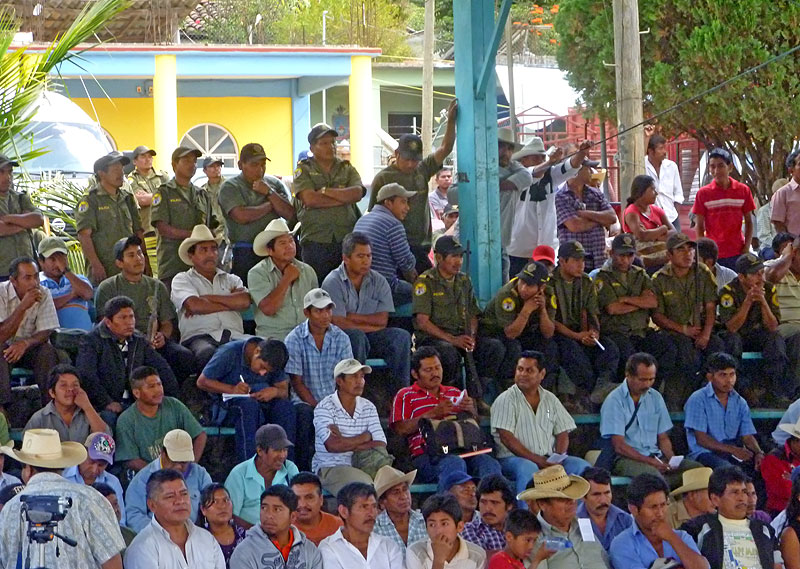
On 30 January were held elections for governor and local congress in the state of Guerrero. Ángel Aguirre Rivero, candidate of Guerrero Nos Une (‘Guerrero Unites Us’), a coalition formed by members of the Party of Democratic Revolution (PRD), the Labor Party (PT), and Convergencia, was declared the winner, although during the night of the elections Manuel Añorve Baños, candidate of the Tiempos Mejores para Guerrero (‘Better Times for Guerrero’) coalition, comprised of the Institutional Revolutionary Party (PRI), New Alliance, and Green Ecologists (PVEM), also claimed victory. The PAN candidate renounced his candidacy some days before the election, and the PAN subsequently endorsed Aguirre Rivero, resulting in a de facto coalition among the PRD, PT, Convergencia, and the PAN.
The pre-electoral environment was characterized by a number of aggressions, disappearances, telephonic surveillance, and tension. Aguirre Rivero and Añorve Baños both complained of the proliferation of messages in different media discrediting his rival. In a report published before the election, the Tlachinollan Mountain Center for Human Rights denounced that the electoral process would be resolved in a “strained environment” given the violence of organized crime and the behavior of the parties oriented to “generate fear and a climate of social instability.” In light of the climate of insecurity, 7500 police were deployed during the elections. Only minor incidents were observed on election day.
Lately, different social organizations in Guerrero have been confronted by an adverse environment: On 5 November, the Hochschild Mexico Mine reported to the Communal Police-Regional Coordination of Communal Authorities (PC-CRAC) in San Luis Acatlán (Costa Chica) that it had authorization from the INEGI to carry out low-altitude overflights to explore for minerals to be exploited. At the beginning of January, the CRAC-PC denounced that exploration carried out by mineral firms continued without the permission of affected communities. In other news, three members of Radio Ñomndaa continue being investigated for their reported crime of participating in a kidnapping. Regardless of the juridical decision against which the accused have appealed, the communal radio celebrated its sixth anniversary in December in the autonomous municipality Suljaa’ (Xochistlahuaca).
Conflict was also had in the case of the planned hydroelectric dam La Parota and the opposition to such: the Federal Commission of Electricity (CFE, a parastatal firm charged with supplying electrical energy) heightened tensions by requesting 4.2 billion pesos from the federal Congress for the 2011 budget, a total that would allow for the construction of the dam. At the beginning of the year, the Council of Ejidos and Communities Opposed to La Parota (CECOP) decided to return to sitting-in at La Parotilla so as to impede CFE access to the lands on which the hydroelectric project would be carried out.
Oaxaca, post-electoral violence, and expectations
One of the immediate challenges of the new government of Gabino Cué Monteagudo is to put an end to the social and political violence that have been experienced of late in Oaxaca. On 25 January the state leader of the Democratic Cardenist Campesino Center (CCCD), Renato Cruz Morales, and his bodyguard were murdered. Cruz Morales had been detained on 16 August 2006 for his participation in the Popular Assembly of the Peoples of Oaxaca (APPO). Furthermore, on 13 January was killed Luis Jiménez Mata, mayor of Santiago Amoltepec.
It would seem that, despite the change in government in Oaxaca, the situation of harassment suffered by human rights defenders and activists tied to the APPO since the social conflict of 2006/2007 has not changed. On 11 January, lawyer and rights-defender Alba Cruz received new threats having to do with her work of legal defense of victims in cases related to the protests and police brutality seen in the state in 2006. On 31 January, Edgar Coache Verano, son of Marcelino Coache, was threatened with death. This recent death-threat is the latest in a series of acts of intimidation and harassment against the Oaxacan political activist Marcelino Coache and his family, who have suffered such threats several times before. It has never been revealed precisely from where such threats have originated; those responsible have not been brought to justice.
The situation of migrants who pass through Mexico in route to the United States has also been covered recently in the media. At the beginning of January a caravan was held called “Step by Step Toward Peace” comprised of migrants and activists who support them that sought to call attention to the dangers and risks suffered by migrants, particularly at the hands of organized crime or the denigrating treatment meted out by the National Institute of Migration (INM). Alejandro Solalinde Guerra, priest of Ixtepec (Oaxaca) and director of the “Brothers in Paths” house, demanded that Mexican authorities grant migrants better protection. For his support of migrants, Father Solalinde has received death-threats emanating from organized crime.
Chiapas: constant worry
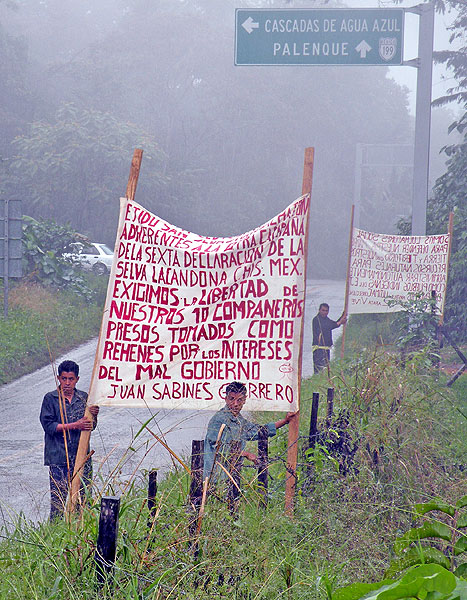
© Friar Bartolomé de las Casas Human Rights Center
The risk run by rights-defenders in Chiapas reached a new climax near the end of the year 2010. on 24 November, the Fray Bartolomé de Las Casas Center for Human Rights (CDHFBC) denounced new acts that took place in San Cristóbal de Las Casas that threatened the life and integrity of Margarita Martínez Martínez as well as that of members of the CDHFBC team. This situation led International Service for Peace (SIPAZ) to take the exceptional decision to carry out institutional accompaniment to the defenders of CDHFBC. The worry expressed by civil national and international organizations notwithstanding, the acts of intimidation continued to be directed against the human-rights organization. On 17 December 2010, the CDHFBC publicly denounced that two external collaborators “were the object of surveillance and harassment in different events that occurred in San Cristóbal de Las Casas.”
The latent tension observed for years in the Agua Azul region was once again escalated at the beginning of 2011. On the afternoon of 2 February, a confrontation between indigenous adherents to the Other Campaign and a group of PRI-affiliated indigenous individuals who dispute control of the control-point located in the tourist center of the Agua Azul waterfalls, municipality of Chilón, left one dead among the PRI group and at least two injured. The State Attorney General’s Office responded by detaining 117 adherents to the Other Campaign from the municipality of Chilón, of which 107 were released the following day. In a special bulletin, the CDHFBC denounced that the detained had had their rights to due process violated. The remaining ten were sentenced to prison. The state government initiated a dialogue-table on 6 February that excluded the participation of adherents to the Other Campaign. It should be mentioned that the confrontation took place following a visit by President Calderón to the state to observe the “Year of Tourism” proclaimed by the federal government for the present year. The eco-archaelogical touristic attractions of Chiapas have for many years been the object of disputes among those opposing this use of the land and development-actors from the state government in conjunction with private capital, both national and foreign.
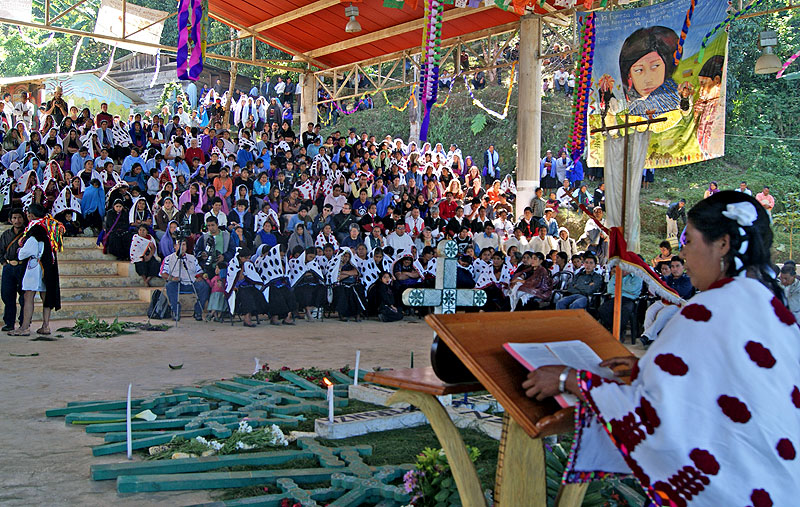
© Friar Bartolomé de las Casas Human Rights Center
With regard to the public policies that are being promoted by the Chiapas state government, the so-called Sustainable Rural Cities (CRS) are another source of conflict. Strongly advanced by the administration of Juan Sabines Guerrero, they are rejected by the communities in whose regions they are planned to be constructed. For several months, the Civil Society Las Abejas has pronounced itself in opposition to the CRS projects. In more general terms, on 19 November 2010, Catholics from 11 municipalities of the Highlands of Chiapas carried out a pilgrimage in San Cristóbal de Las Casas to express their opposition to the Rural Cities, mineral exploitation, and the construction of dams, all of which they consider to be “projects of death.” During the mass that concluded the pilgrimage, the Auxiliary Bishop Enrique Díaz Díaz expressed the support on the part of the diocese for the pilgrims and requested that the authorities take account of the desires of the indigenous and their communities before constructing works or advancing with projects that affect them.
Las Abejas, an organization of survivors and family-members of the victims of the Acteal massacre, perpetrated on 22 December 1997, held the thirteenth anniversary of the event by carrying out the meeting “Constructing resistance and autonomy in light of counter-insurgency and dependency” in Acteal last December. Organizations and persons from Chiapas, Oaxaca, and Atenco participated; in the final pronouncement of the meeting, they affirmed that “by building alliances as we choose and by globalizing our struggles from below, we maintain our own work without depending on welfare or governmental programs.”

